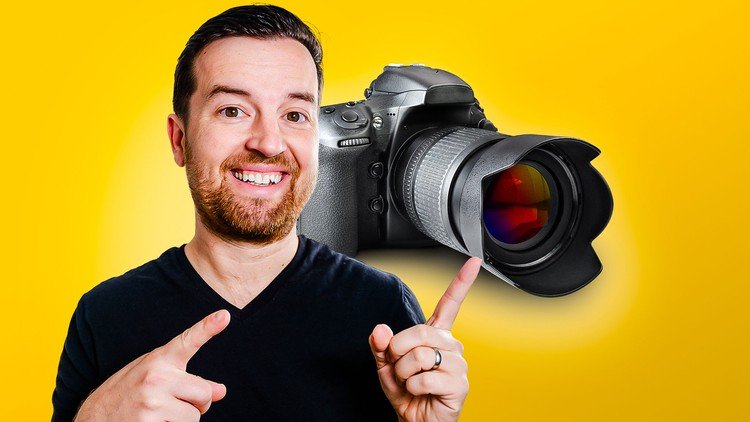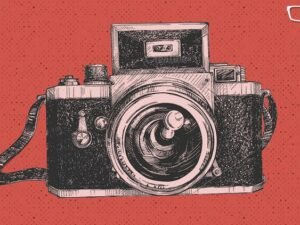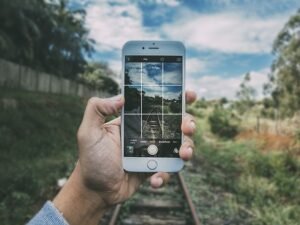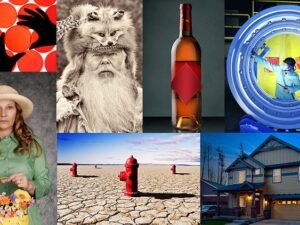- +91 844 9090 904
- info@maximumlearning.io
- Sector 62, Noida, 201309
- Description
- Curriculum
- FAQ
ALWAYS UPDATED WITH NEW LESSONS
+ Free instant access to a 276-page guidebook
+ Free access to our exclusive member student photography community
+ $100+ worth of Lightroom Presets Added to the course
+ Inspirational Student Photos book with 52 weeks of Weekly Challenges
This online photography course will teach you how to take amazing images and even sell them, whether you use a smartphone, mirrorless or DSLR camera.
This photography course is designed to teach you the ins and outs of photography, even if you have little to no experience with it, to help create profitable images that help you stand out from the crowd and sell.
Master Photography Techniques to Create Extraordinary Images!
While there are plenty of digital photography courses that focus on specific styles or how to use gear, it’s hard to find a comprehensive course like this one, which is for beginner to advanced photographers.
This course is designed for all levels of photographers who want to improve their skills, take stellar images, and make money with their photos – especially great for any DSLR or mirrorless camera user.
What will you learn:
-
Understand how cameras work and what gear you need
-
Master shooting in manual mode and understanding your camera
-
Know what equipment you should buy no matter what your budget is
-
Follow our practical demonstrations to see how we shoot in real-world scenarios
-
Use composition, lighting, and proper settings to take better photos
-
Edit photos professionally to make them look even better
-
Learn start a photography business and make money from your new skills
Styles of photography you will learn:
-
Portrait photography
-
Long exposure photography
-
Landscape photography
-
Product photography
-
Low light photography
-
Sports and action photography
-
Street photography
-
Architecture photography
-
Event and wedding photography
-
Aerial and drone photography
-
Wildlife photography
-
Night photography
-
DSLR photography
-
Mirrorless photography
-
Smartphone photography
-
and more!
Improve Your Photography Techniques, Acquire Clients, And Make More Money
Regardless of what your level of experience is or what type of camera you use, this in-depth course is designed to provide you with everything you need to take your photography skills to the next level.
Whether you prefer taking photos of nature, animals, or people, a great photographer knows how to compose a shot, light it, and edit it. By honing these skills, you can sell your photos so you can turn your passion into a career. This course shows you how.
Unlike other photography classes that are more limited in scope, this complete course teaches you how to take amazing photos and how to make money by selling them.
Contents and Overview
This course is aimed at teaching photographers what it takes to improve your techniques to earn more money.
You’ll start with the basics and tackle how a camera operates, the types of cameras and lenses available, and equipment you’ll need for accomplishing your goals. You’ll then dive into the different styles of photography you can focus on.
You’ll learn about your camera settings (DSLR, mirrorless, or other), including how to shoot in manual mode. You’ll use stabilization tools and master how to properly compose and light a scene. You’ll even learn how to take great photos with a smartphone or tablet and how to edit images.
So you can sell your photos, you’ll learn how to brand yourself, create a portfolio and website, and find freelance work or a full-time position. Gain insight into licensing, fair use, and more. And if you want to get into wedding photography, you’ll learn how to start your own business.
By the end of this master course, your confidence as a photographer will soar. You’ll have a thorough understanding of your camera and gear so you can use them to their fullest potential to take unforgettable photos and start a profitable photography career.
What camera should you use?
A DSLR camera or mirrorless camera is a great option for taking this course. It doesn’t have to be an expensive or fancy model. Any interchangeable lens camera like a DSLR or mirrorless is fine. You can even use a smartphone or point and shoot camera, although you may not have all the manual settings and options that we cover in this course.
Who are the Instructors?
Phil Ebiner, Sam Shimizu-Jones, and Will Carnahan – all professionals making a living from their photographic skills, have come together to create this amazing new course.
Phil & Sam, creators of the original Photography Masterclass, took the feedback left from students to make this course even better. Will has come on board to share his passion and in-depth knowledge of photography with you.
With 3 instructors, you’ll get premium support and feedback to help you become a better photographer!
Our happiness guarantee…
We have a 30-day 100% money back guarantee, so if you aren’t happy with your purchase, we will refund your course – no questions asked.
We can’t wait to see you in the course!
Enroll now, and we’ll help you take better photos than ever before!
Phil, Sam, & Will
Exposure in Photography
-
1Welcome to the Photography Masterclass
Welcome to the Photography Masterclass! In this lesson, you'll be welcomed by Phil, Sam and Will with important information about how best to take this course, what's included, and how you can make this course even better. Thank you for enrolling!
-
2DOWNLOAD: Photography Course Workbook | Photography Masterclass
We've created a downloadable workbook for you to use while taking this course. It includes key points from each lesson, links to supplemental resources, as well as a space for you to take notes. Feel free to print it out.
We hope this helps you in this course and improves your learning experience!
Cheers,
Phil, Will & Sam
-
3How Does a Camera Work? | Photography Masterclass
How does a camera work? This is the first step to understanding how to take better photos.
At its core, photography is about capturing light. Your camera can see bright light, and if there’s an absence of light. It can see colors too!
That light goes into your camera through the lens, which has an aperture inside, an opening that lets in the light. The light passes through the camera’s shutter which in many cameras opens when you press the ‘shutter release’ button to let light in… and the light hits your camera’s sensor, where it is digitally captured and saved as an image.
While digital photography is a lot easier than photographing with film, the process is still the same. And as one of the most important inventions of all time, we’re excited to have you in this class to learn even more.
-
4Join the Official Student Photography Group | Photography Masterclass
Please join our official group to get even more feedback and support!
-
5Inspirational Student Photos & Weekly Challenge Book | Photography Masterclass
-
6IMPORTANT: Know Your Lecture Types | Photography Masterclass
Before continuing with the Photography Masterclass, watch this video to learn the different types of lectures.
-
7Tips to Improve Your Photography Class Taking Experience
Composition in Photography
-
8What is Exposure? | Photography Masterclass
What is exposure? Photography exposure is basically how bright or dark your image is. We call a photo that is too dark, underexposed. A photo that is too bright is overexposed.
A photo where your subject is not too dark, and not too bright, but it looks natural, is properly exposed. Your subject could be anything from a person to a mountain in the distance.
Depending on your photo’s composition, not everything can be properly exposed. Sometimes your background will be too bright. Sometimes one side of your photo will be too dark.
The important thing we want you to remember with ‘proper exposure’ is that it’s partly up to you as the artist. You may want your photo to be dark or to be bright. That can create some interesting and creative shots.
This is the basic idea of photography exposure. As you go through the course, you'll learn how to control your photo's exposure using in-camera options like aperture, shutter speed and ISO, as well as out-of-camera things like natural and artificial lighting.
-
9What is Aperture? | Photography Masterclass
What is aperture? Aperture is the first part of the exposure triangle, and the first part of your camera that controls how much light enters and is captured.
Inside your lens is a hole. This hole can go bigger and smaller. This is your aperture, which is sometimes called the ‘iris,’ similar to the iris or pupil of your eye. Now if you make the aperture larger, do you think more light is let in or less light?
That one is easy - more light is let in when the hole is bigger. This means that increasing the size of the aperture will make your image brighter. Decreasing will make it darker.
How do we adjust our aperture?
An f-stop, also known as an f-number, is a method of describing the size of the aperture. This f-stop scale goes from f/1 to f/1.4 to f/2 to f/2.8 to f/4… and beyond.
There are 2 potentially confusing things about the f-stop scale.
First, the smaller the f-number, the larger the aperture. Visa versa, the larger the f-number, the smaller the aperture. So an f/2.8 is larger, and lets in more light than an f/11. Make sense?
-
10VISUAL GUIDE: Aperture Chart | Photography Masterclass
This lesson of the Photography Masterclass is a visual guide that will help you understand what the aperture is.
-
11What is Shutter Speed? | Photography Masterclass
In this lesson of the Photography Masterclass, you'll learn:
What is shutter speed?
-
12What is ISO? | Photography Masterclass
In this lesson of the Photography Masterclass, you'll learn:
What is ISO and how it effects exposure?
-
13The Exposure Triangle in Photography | Photography Masterclass
In this lesson of the Photography Masterclass, you'll learn:
The Exposure Triangle
-
14VISUAL GUIDE: Exposure Triangle | Photography Masterclass
This lesson of the Photography Masterclass is a visual guide that will help you understand what the exposure triangle is.
-
15Intro to the Photography Masterclass Activities | Photography Masterclass
Learn more about the activities in this course!
-
16Exposure Activity | Photography Masterclass
-
17Exposing with Your Camera's Light Meter | Photography Masterclass
In this lesson of the Photography Masterclass, you'll learn how to read the light meter on your camera.
-
18ADVANCED: Metering Modes | Photography Masterclass
In this lesson of the Photography Masterclass, you'll learn the different automatic metering modes in a typical digital camera.
-
19ADVANCED: Exposure Compensation | Photography Masterclass
In this lesson of the Photography Masterclass, you'll learn what exposure compensation is, and how it affects the look of your photo.
-
20Camera Exposure Modes: Automatic, Manual + More | Photography Masterclass
In this lesson of the Photography Masterclass, you'll learn the different modes on your camera.
-
21ADVANCED: Dynamic Range | Photography Masterclass
In this lesson of the Photography Masterclass, you'll learn what dynamic range is - and how it relates to exposure.
-
22ADVANCED: HDR and Bracketing | Photography Masterclass
In this lesson of the Photography Masterclass, you'll learn what HDR photography is.
-
23ADVANCED: Reading Exposure with the Histogram | Photography Masterclass
In this lesson of the Photography Masterclass, you'll learn how to read exposure with the camera's histogram.
-
24VISUAL GUIDE: Histogram | Photography Masterclass
This lesson of the Photography Masterclass is a visual guide that will help you understand what the histogram is.
-
25ADVANCED: What is an Exposure Stop | Photography Masterclass
In this lesson of the Photography Masterclass, you'll learn what an exposure stop is.
-
26VISUAL GUIDE: Stops of Light | Photography Masterclass
This lesson of the Photography Masterclass is a visual guide that will help you understand what a stop of light is.
-
27Supplemental Materials | Photography Masterclass
In this lesson, you'll find a list of articles and helpful resources that will help you deepen your knowledge about the main topics in this section.
-
28COURSE BREAK: Check Out Our Ultimate Resource for New Photographers
Focus and Depth of Field in Photography
-
29What is Composition? | Photography Masterclass
In this lesson of the Photography Masterclass, you'll learn what composition is, and what you'll learn in this section.
-
30The Rule of Thirds | Photography Masterclass
In this lesson of the Photography Masterclass, you'll learn what the rule of thirds is and how it can improve your photography.
-
31VISUAL GUIDE: The Rule of Thirds | Photography Masterclass
This lesson of the Photography Masterclass is a visual guide that will help you understand what the rule of thirds is.
-
32PRO TIP: The Golden Ratio | Photography Masterclass
In this lesson of the Photography Masterclass, you'll learn how to use the golden ratio to improve your photography composition.
-
33Negative Space | Photography Masterclass
In this lesson of the Photography Masterclass, you'll learn what negative space is and how it can make your photos even better.
-
34Leading Lines | Photography Masterclass
In this lesson of the Photography Masterclass, you'll learn a new composition style - using leading lines in your photos to draw attention to the subject.
-
35Balance & Symmetry | Photography Masterclass
In this lesson of the Photography Masterclass, you'll learn about having balance and symmetry in your photo.
-
36Composition Activity | Photography Masterclass
-
37Perspective & Angle | Photography Masterclass
In this lesson of the Photography Masterclass, you'll learn how perspective and angle change more than just the look of your photo.
-
38Backgrounds | Photography Masterclass
In this lesson of the Photography Masterclass, you'll learn how to choose the right background to improve your photography.
-
39PRO TIP: Creating Depth with Layering | Photography Masterclass
In this lesson of the Photography Masterclass, you'll learn how to create depth in your photos by layering.
-
40PRO TIP: Using Shapes in Compositions | Photography Masterclass
In this lesson of the Photography Masterclass, you'll learn how to compose your photos using shapes that naturally occur in the environment.
-
41ADVANCED: Shooting Portraits with a Wide vs. Telephoto Lens
In this lesson of the Photography Masterclass, you'll learn how shooting portraits with different types of lenses can actually change what a person's face looks like.
-
42Will Analyzes His Compositional Style on Instagram | Photography Masterclass
-
43Supplemental Materials | Photography Masterclass
In this lesson, you'll find a list of articles and helpful resources that will help you deepen your knowledge about the main topics in this section.
Camera Anatomy & Settings in Photography
-
44What is Depth of Field? | Photography Masterclass
In this lesson of the Photography Masterclass, you'll learn what depth of field is, and what you'll learn in this section of the course.
-
45Depth of Field & Aperture | Photography Masterclass
In this lesson of the Photography Masterclass, you'll learn what depth of field is and how aperture affects the depth of field.
-
46VISUAL GUIDE: Depth of Field | Photography Masterclass
This lesson of the Photography Masterclass is a visual guide that will help you understand what depth of field and focus zones are.
-
47Ways to Get Shallow Depth of Field | Photography Masterclass
In this lesson of the Photography Masterclass, you'll learn multiple ways to get a blurrier background.
-
48Manual Focus vs. Auto Focus | Photography Masterclass
In this lesson of the Photography Masterclass, you'll learn how to adjust your focus manually or with automatic focus.
-
49Auto Focus Modes | Photography Masterclass
In this lesson of the Photography Masterclass, you'll learn how to adjust the auto focus mode on your camera to change how your camera focuses.
-
50Tips for Shooting Fast Objects | Photography Masterclass
In this lesson of the Photography Masterclass, you'll learn how to capture fast moving subjects sharply.
-
51Photographing Fast Objects Activity | Photography Masterclass
-
52PRO TIP: Focusing in Low Light | Photography Masterclass
In this lesson of the Photography Masterclass, you'll learn how to shoot sharp images in low light.
-
53ADVANCED: Understanding Bokeh | Photography Masterclass
In this lesson of the Photography Masterclass, you'll learn what bokeh is.
-
54Bokeh Demonstration: How Does Bokeh Get It's Shape? | Photography Masterclass
-
55ADVANCED: Focusing for Photos with Foreground and Background Elements
-
56PRO TIP: Back Button Focus | Photography Masterclass
In this lesson of the Photography Masterclass, you'll learn how to use back button focus on your camera to improve your photography.
-
57ADVANCED: Viewfinder Focus | Photography Masterclass
In this lesson of the Photography Masterclass, you'll learn how to adjust the focus of the viewfinder itself with the diopter.
-
58Supplemental Materials | Photography Masterclass
In this lesson, you'll find a list of articles and helpful resources that will help you deepen your knowledge about the main topics in this section.
White Balance and Color in Photography
-
59What is Camera Anatomy? | Photography Masterclass
In this lesson of the Photography Masterclass, you'll learn about the camera itself, and what's included in this section.
-
60Main Features of Most Cameras | Photography Masterclass
In this lesson of the Photography Masterclass, you'll learn the common features of most DSLR and mirrorless cameras.
-
61Camera Scene Modes | Photography Masterclass
In this lesson of the Photography Masterclass, you'll learn about camera scene modes - and when to use them.
-
62File Types: RAW vs. JPEG | Photography Masterclass
In this lesson of the Photography Masterclass, you'll learn the difference between RAW and compressed JPEG images.
-
63Your Camera's Sensor | Photography Masterclass
In this lesson of the Photography Masterclass, you'll learn about your camera's sensor.
-
64VISUAL GUIDE: Camera Sensor Sizes | Photography Masterclass
In this lesson of the Photography Masterclass, you'll see the difference between camera sensor sizes.
-
65Photo Resolution | Photography Masterclass
In this lesson of the Photography Masterclass, you'll learn what photo resolution is, and how it relates to quality.
-
66Burst Mode (Continuous Mode) | Photography Masterclass
In this lesson of the Photography Masterclass, you'll learn how to take multiple photos in a short amount of time with burst (or continuous) modes.
-
67DSLR vs Mirrorless Cameras | Photography Masterclass
In this lesson of the Photography Masterclass, you'll learn the main differences between a DSLR and mirrorless camera.
-
68How to Use Almost Any Camera Out There! | Photography Masterclass
In this lesson of the Photography Masterclass, you'll get resources to help you learn how to use your specific camera.
-
69Supplemental Materials | Photography Masterclass
In this lesson, you'll find a list of articles and helpful resources that will help you deepen your knowledge about the main topics in this section.
Lighting & Flash Photography
-
70Intro to White Balance and Color | Photography Masterclass
In this lesson of the Photography Masterclass, you'll learn what white balance is and what you'll learn in this section.
-
71What is Light Temperature and White Balance? | Photography Masterclass
In this lesson of the Photography Masterclass, you'll learn what white balance and light temperature are.
-
72The Kelvin Temperature Scale | Photography Masterclass
In this lesson of the Photography Masterclass, you'll learn how to read light temperatures with the kelvin scale.
-
73VISUAL GUIDE: Kelvin Light Temperature Chart | Photography Masterclass
In this lesson of the Photography Masterclass, you can download a handy guide to the kelvin scale.
-
74White Balance Modes & Auto White Balance | Photography Masterclass
In this lesson of the Photography Masterclass, you'll learn how to use your camera's automatic white balance modes to properly photograph different scenes.
-
75VISUAL GUIDE: White Balance Symbol Chart | Photography Masterclass
In this lesson of the Photography Masterclass, you can download a handy guide that shows the popular white balance symbols and when to use them.
-
76ADVANCED: Picture Profiles and In-Camera Adjustments | Photography Masterclass
In this lesson of the Photography Masterclass, you'll learn about picture profiles and how it affects your image.
-
77ADVANCED: Light Spectrum & Colors | Photography Masterclass
In this lesson of the Photography Masterclass, you'll learn about the light spectrum and colors.
-
78Using Color Creatively in Your Photos | Photography Masterclass
In this lesson of the Photography Masterclass, you'll learn how to improve you photography with creative colors.
-
79Shooting for Black and White | Photography Masterclass
In this lesson of the Photography Masterclass, you'll learn how to improve your black and white photography.
-
80Creative Color Activity | Photography Masterclass
-
81PRO TIP: Black and White Techniques | Photography Masterclass
In this lesson of the Photography Masterclass, you'll learn pro tips for how to improve your black and white photography.
-
82ADVANCED: Set White Balance with Custom WB Mode | Photography Masterclass
In this lesson of the Photography Masterclass, you'll learn how to use the custom white balance setting in your camera to do so.
-
83Supplemental Materials | Photography Masterclass
In this lesson, you'll find a list of articles and helpful resources that will help you deepen your knowledge about the main topics in this section.
How long do I have access to the course materials?
You can view and review the lecture materials indefinitely, like an on-demand channel.
Can I take my courses with me wherever I go?
Definitely! If you have an internet connection, courses on Udemy are available on any device at any time. If you don't have an internet connection, some instructors also let their students download course lectures. That's up to the instructor though, so make sure you get on their good side!








